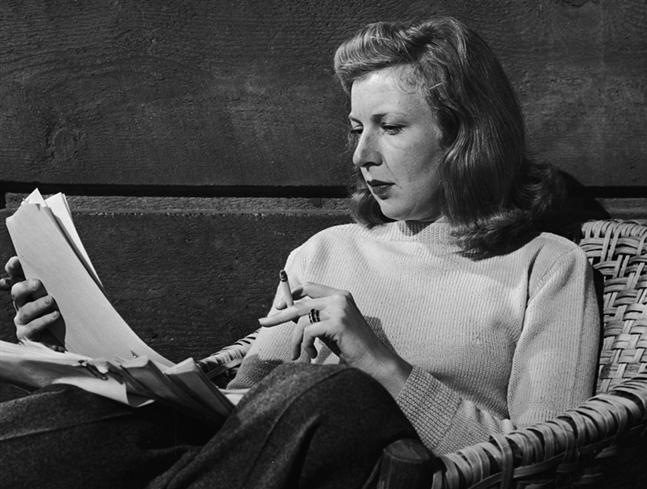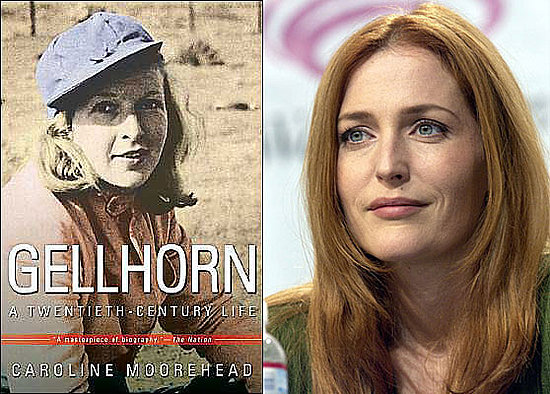| by Bel | 7.58am NZ time |
A pile of books I plowed through earlier this year. It was a sad ratio of 50/50 duds to great reads.
Clockwise from top left:
- Game Change creative non-fiction by John Heilemann and Mark Halperin
- Beautiful: The Life of Hedy Lamarr biography by Stephen Michael Shearer
- Voluntary Madness memoir by Norah Vincent
- The Year of Magical Thinking memoir by Joan Didion
- Princess Noire: The Tumultuous Reign of Nina Simone biography by Nadine Cohodas
- And Now You Can Go autobiographical novel by Vendela Vida
Game Change creative non-fiction by John Heilemann and Mark Halperin
This a great book - I was recommending it to anyone I came across as I (avidly) read it. I've used the term "creative non-fiction" as it is a reconstruction of the US presidential election of 2008, with the narrative brought to live by quotes from over 200 interviews.
In any other circumstance, I'd be worried about the legitimacy of this kind of writing, but as the authors as renowned political journalists and editors at Time and New York magazine. Their reputations give this a ring of authority - that and the fact that the brutal characterisations of the political players rings so true.
BONUS: I hunted this down after seeing an interview where Joan Rivers said she'd read it.
DOUBLE BONUS: It's now being made into a TV movie.
Beautiful: The Life of Hedy Lamarr biography by Stephen Michael Shearer
A Golden Age film star, Hedy Lamarr died in obscurity and may well have been long forgotten if her scientific prowess had not been revealed. The amateur research done by her and her friend, composer George Antheil, during World War II has now been announced as the underpinning of modern mobile phone technology - as well as a contribution to the war effort in advancing missile development.
There is so much to Lamarr's story which is intriguing (the scandal of her early days as an actress in Austria, her disguised escape from her first marriage, the five husbands that followed, her connections with other survivors of the European Jewish diaspora) and yet this overly long and ridiculously detailed biography manages to suck the life out of it.
With hindsight, it can be seen that despite her much heralded beauty, Lamarr was actually a bit of a B-grade actress. And yet this book pedantically describes her every movie, including each costume worn, with snipped review quotes attempting to bolster her reputation.
Part of the allure of Lamarr was her mystery, with her accented voice and unapproachable beauty, and to plow through such attention to detail dulls the power of the myth.
Voluntary Madness memoir by Norah Vincent
This was awful. The first chapter gave me enough to know I didn't want to read further.
This self-proclaimed "immersion journalist" decides to admit herself to psychiatric care in a experiment to see how sane people cope in those surroundings. She then mentions that she actually has a history of mental illness - including a breakdown the preceding year.
And no less than three times in the first chapter, she mentions her concerns about the food on offer in these facilities and the risk of putting on weight. Not to judge or anything, but, um, ISSUES.
But worst of all, the writing was bad. There were inconsistencies in her reporting even between pages that faced each other in the book! One moment she was saying that patients were left to their own devices, staff remote and inaccessible - then the next she described in detail a chess game taking place between a patient and an orderly! It was impossible to take this seriously.
The Year of Magical Thinking memoir by Joan Didion
Wow. This is an incredible book. But I'm almost reluctant to recommend it, as it made me bawl - and that is not everyone's cup of tea!
A treatise on grief, we follow Didion's journey as she attempts to come to terms with an incomplete life following the death of her husband of nearly 40 years. Her honest portrayal of pain and love is so evocative it's hard not to be affected.
Princess Noire: The Tumultuous Reign of Nina Simone biography by Nadine Cohodas
Nina Simone! Don't tell me you don't love her! And you will have a greater respect for her work and her struggle after having read this detailed biography.
Did you know Nina herself played all the piano you hear in her songs? I did not! I was delighted to learn that the amazing music in songs like this was thanks to the woman herself:
And let's not forget the way it was sampled by Talib Kweli in this:
Wait, wait - no. Check out the official remix - what a line up!
Ok. What was I talking about??
Oh yeah - Nina.
She lived a long life but only saw royalties from her music in the last years - she was not wealthy even when she was at the peak of her career. This alone seems unjust, but when her mental health issues are factored in it makes it seem worse. Both schizophrenia and bipolar disorder are mentioned in passing, but the author appeared unwilling to confirm a diagnosis.
Between this, her naturally abrasive personality and the fact that she was outspoken about civil rights at a time when you could wind up dead for doing so, Nina garnered a reputation for being difficult. And yet the legacy of her music is nothing but a pleasure.
And Now You Can Go autobiographical novel by Vendela Vida
Gahhh. Sorry, I was keen to like this, but, um, no. No siree. Barely read past the first pages.
WAIT. I just read a review of this and it turns out I must've read the whole thing!! Ye gods. Not a good sign.
The book opens with a traumatic event - the protagonist held at gunpoint in a public park. The rest of the book shows her dealing (and not dealing) with the aftermath. She ends a relationship, takes a spontaneous overseas trip, relies on her family for support but is shocked by the lengths her friends will go to.
And yet somehow all this is very disengaging. There is no drama beyond the initial conflict, we are just on the first-person ride of this confused woman's stream of consciousness. I remember being a self-absorbed 21 year old all too well, I don't want to relive it.



































